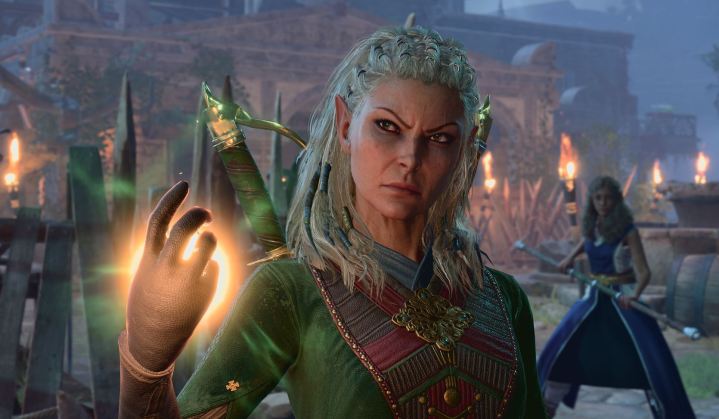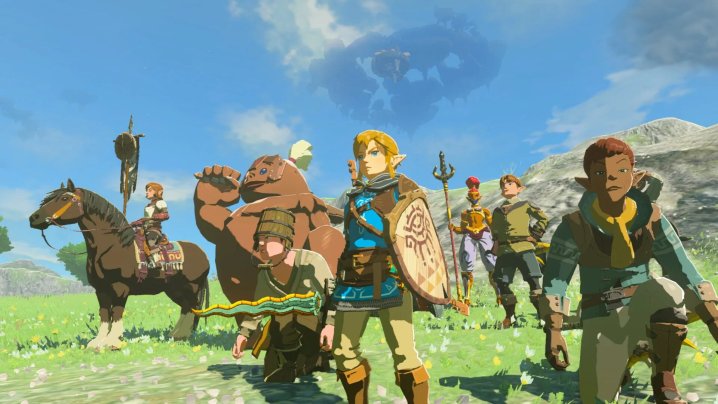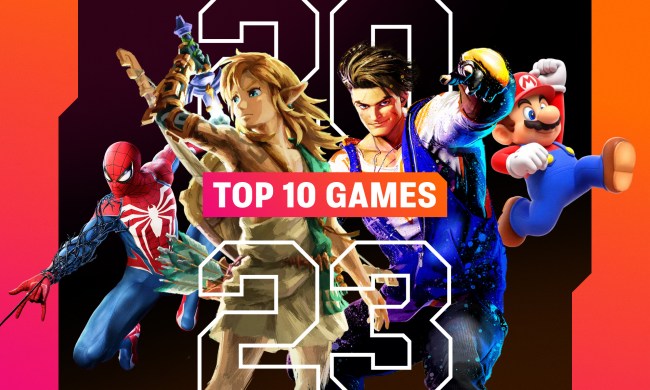
Baldur’s Gate 3 game director Swen Vincke shocked fans of the Dungeons & Dragons RPG when he revealed that the critically acclaimed game would not get any expansions and that Larian Studios would not go right into making Baldur’s Gate 4. Considering how much of a runaway success Baldur’s Gate 3 has been, it seemed like that would be the most logical continuation of things. Larian isn’t the only studio to leave behind a wildly successful game either; Nintendo has confirmed The Legend of Zelda: Tears of the Kingdom also won’t get any expansions.
Those might seem like baffling decisions, both from a business perspective and from the point of view of an eager player who just wants more of a thing they love. But they become a lot more understandable when you learn to view these games as complete works, appreciate the post-launch support that has happened for a game like Baldur’s Gate 3, and turn that excitement toward whatever is coming next from these developers.
A complete work
Vincke explained to IGN that Larian had actually started to do some preliminary work on Baldur’s Gate 3 DLC but that the constraints of working within D&D 5th edition meant that work “wasn’t really coming from the heart” and that the team’s passion lied with two other projects Larian wanted to make. As a result, leadership at Larian made the decision not to work on a massive expansion or sequel to Baldur’s Gate 3 for the time being, and Vincke claims the studio was “elated” by that decision. Zelda series producer Eiji Aonuma offered a similar sentiment when he revealed Tears of the Kingdom wasn’t getting DLC, explaining that “we feel like we have already fully explored and exhausted the gameplay possibilities in this world” and that “the next [Zelda] game will offer a completely new experience.”

Those comments should cause us as players to take a step back and assess and accepted these games a completed works. Both are fantastic games that push the limits of organic, emergent gameplay and narrative in video games. They tell complete stories with memorable characters and have intricately constructed worlds and plots that also offer space for player expression and freedom. And while both Baldur’s Gate 3 and Tears of the Kingdom do have their eventual narrative conclusions, they both can offer up hundreds of hours of gameplay.
Baldur’s Gate 3 and Tears of the Kingdom are finished experiences, and while it’d be neat to get more of both, we don’t necessarily need it. I also think both games have enough replay value already, so you can make different character build and narrative choices in Baldur’s Gate 3 or use Ultrahand and Fuse to solve Tears of the Kingdom’s puzzles in a different way if you want either game to feel fresh to you again. In an age where it feels like content in games can be underwhelming at launch and then trickled out for months or years afterward, I’m glad I don’t have that sentiment around a game like Baldur’s Gate 3.
Also, the idea that Larian Studios isn’t doing any sort of post-launch support for Baldur’s Gate 3 is a misnomer because it already has. Lots of post-launch patches for the game over the past eight months have not just fixed bugs and improved balancing but brought whole new modes, gameplay, and narrative content to the game, and there are more updates on the way. It’s not hard to see a world where the November update that overhauled the story’s ending and added the Honour and Custom modes was packaged as epilogue DLC, but Larian instead just put that out as a free update.

While I’m not saying we need to be grateful that Larian decided not to charge players for that, we can still appreciate that we have gotten plenty of free post-launch content to improve Baldur’s Gate 3. Now, whether it’s on another Divinity game or something new entirely, we’ll see how Larian can expand on the refined narrative and gameplay chops it perfected on Baldur’s Gate 3 in a title that’s not barred to a license and predetermined ruleset. Meanwhile, I’m sure Nintendo will keep finding ways to surprise us with The Legend of Zelda series as it has for decades.
For games that get as popular and viral as Tears of the Kingdom or Baldur’s Gate 3, it can be tough to accept that we’re not getting any more and move on. We’re conditioned by popular live service games to give everything we play our nonstop undivided attention. But these aren’t games getting shut down preemptively or delisted (at least for now); they are completed works that will go down as all-timers in the video game industry.
Because of that, I’m fine with letting go of these games and letting their developers try new things, potentially having the chance to create something else that’s just as captivating.



